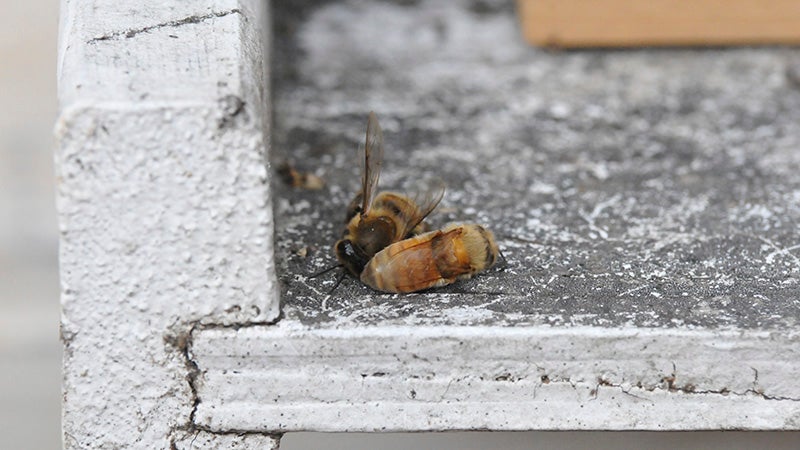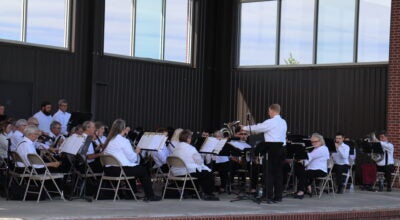Honey producing pollinators still facing fatal problems
Published 7:00 am Saturday, February 3, 2018

- COLLAPSE: These bees were found at the entrance of one of two hives at the Crosby Arboretum, where staff report a hive died for an unknown reason. Honeybees are one of the world’s top pollinators. Photo by Leah McEwen
Pollinator insects play a major role in just about every ecosystem. Without insects to pollinate crops a large number of the crops relied upon for food would be lost. There are several types of insects categorized as pollinators, such as butterflies and bees. Of all of the pollinators, however, honeybees are often considered the most important.
According to an article in BioScience written by Myma E. Watanabe, pollination from honeybees can be contributed to over $15 billion worth of produce in the United States annually. Approximately one-third of the United State’s agriculture relies on pollinators such as honeybees. Crops such as squash, pumpkins, apples, carrots, melons and northeastern blueberries, to name a few, all rely on honeybees for pollination and crop production, the article states. Unfortunately, honeybees are dying out at an alarming rate due to various causes such as parasites, bacterial infections, mites, and pesticides.
According to an annual survey conducted by the Bee Informed Partnership and the Apiary Inspectors of America, between April 2016 and March 2017, beekeepers lost approximately 33 percent of their colonies. While this number is down slightly from previous years, the honeybee population in the United States still faces a major crisis.
Honeybees play a major role in Mississippi’s agriculture. According to Dr. Eddie Smith, Mississippi State University’s Pearl River County Extension Agent and County Coordinator, honeybees play a key role in large-scale agricultural crops as well as home gardens. According to the Mississippi Department of Agriculture and Commerce, in Mississippi alone, honeybees can be attributed to over $200 million in annual profits.
Bees can be helped in several ways such as by planting specific pollinator-friendly plants and flowers. MSU’s article, Gardening for Beneficial Bees in Mississippi, provides an extensive list of flowers and herbs that attract bees. The article also warns against introducing plants such as rhododendrons, azaleas, angel’s trumpet, oleander and Carolina jessamine to a garden.
“While these plants do extremely well in Mississippi’s climate and do provide pollen and nectar, the nectar is quite toxic to honey bees,” the article states.
Jennifer Buchanan, Curator of the Educational Program at the Crosby Arboretum, recommends making or providing artificial structures for bees as another way to help. Hollow straws or pieces of bamboo can be tied together and hung from a tree branch for bees to build their hives. Buchanan says to hang the structure in an area where it will receive sunlight in the morning. As bees are more active in the mornings, direct sunlight will help warm and energize them.
Buddy Broadway, a local beekeeper and beekeeping instructor at the Crosby Arboretum, says that it is important to keep bees in mind when planning your spring garden. Broadway says that it is extremely important to check the warning labels on any chemicals or insect repellants before use to ensure local bees won’t be harmed. Broadway says to be sure to read caution labels and follow recommended “dos” and “don’ts” because certain chemicals can kill entire hives.
If pesticides are necessary to maintain a garden, Smith recommends spraying those chemicals late in the afternoon. Bees are most active in the morning and return to their hives in the afternoon. The later chemicals are used, the less likely they will harm neighboring bee populations.





